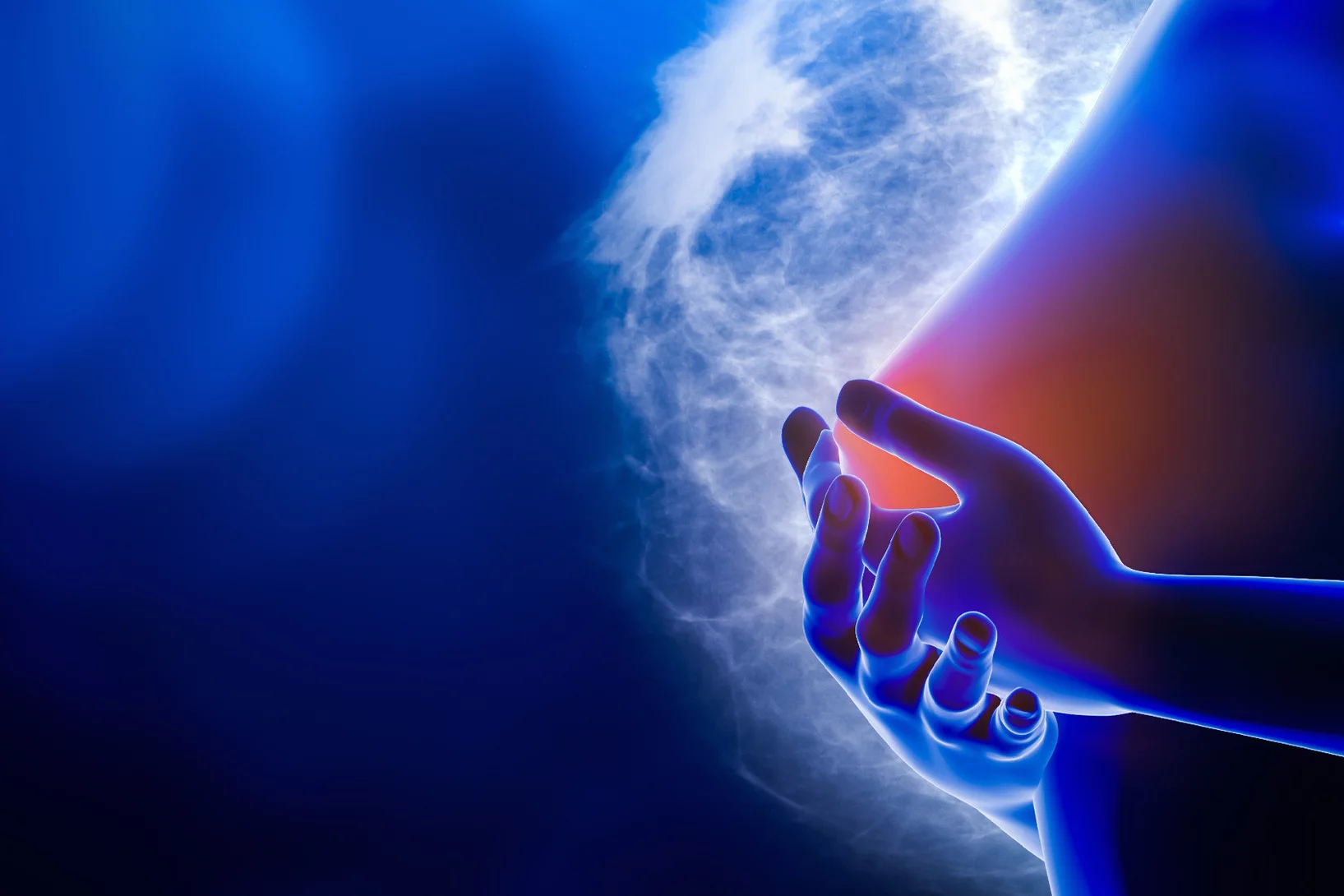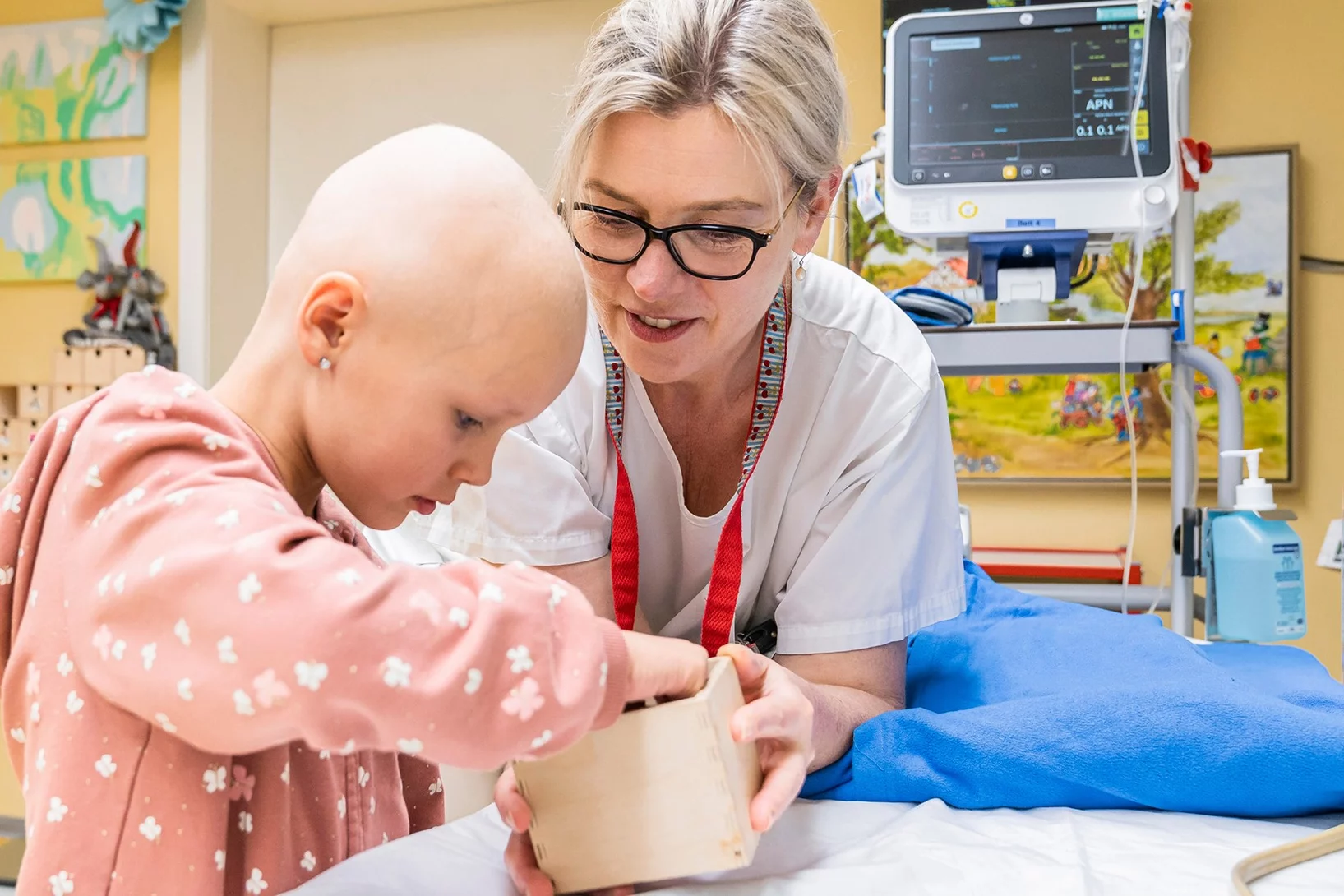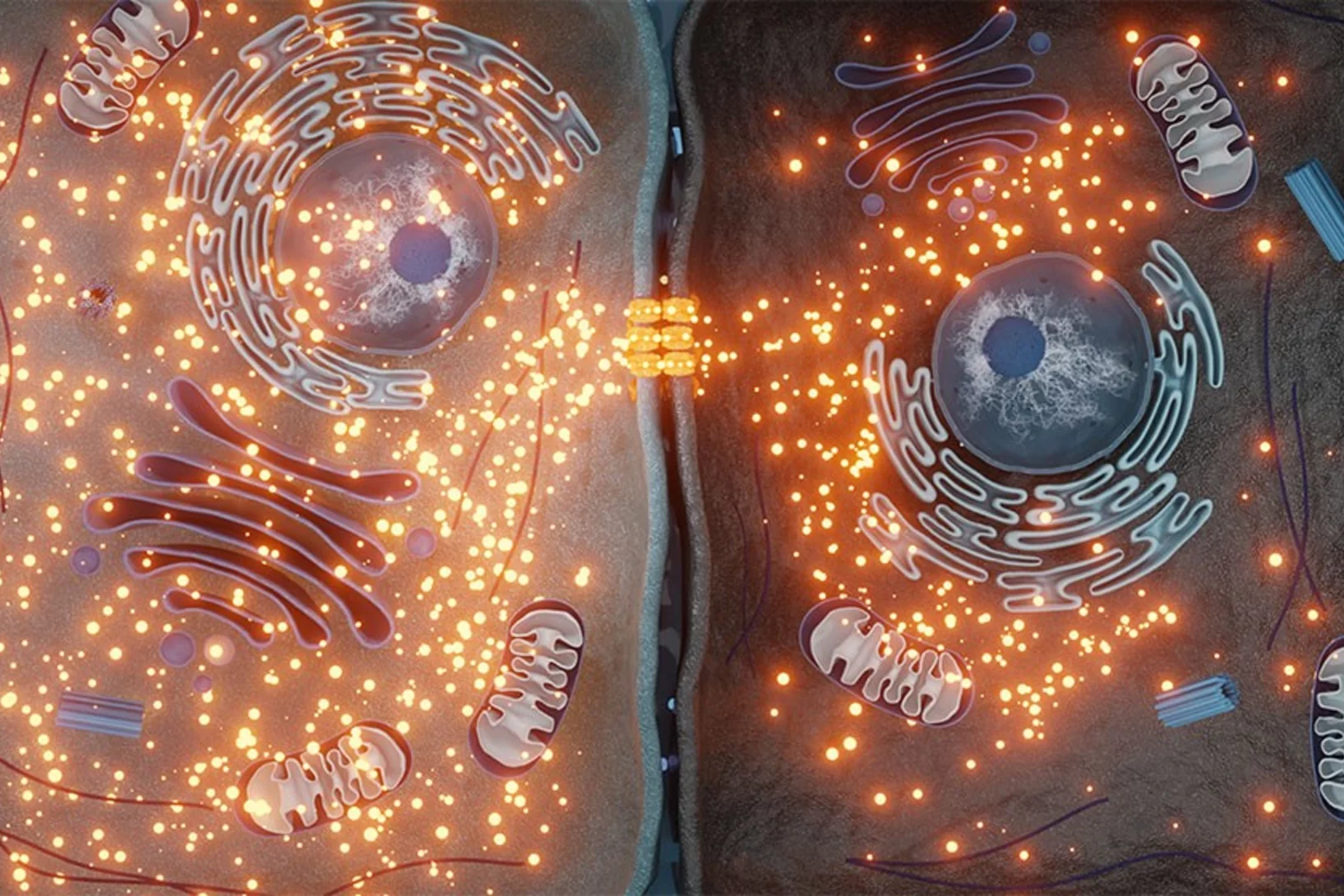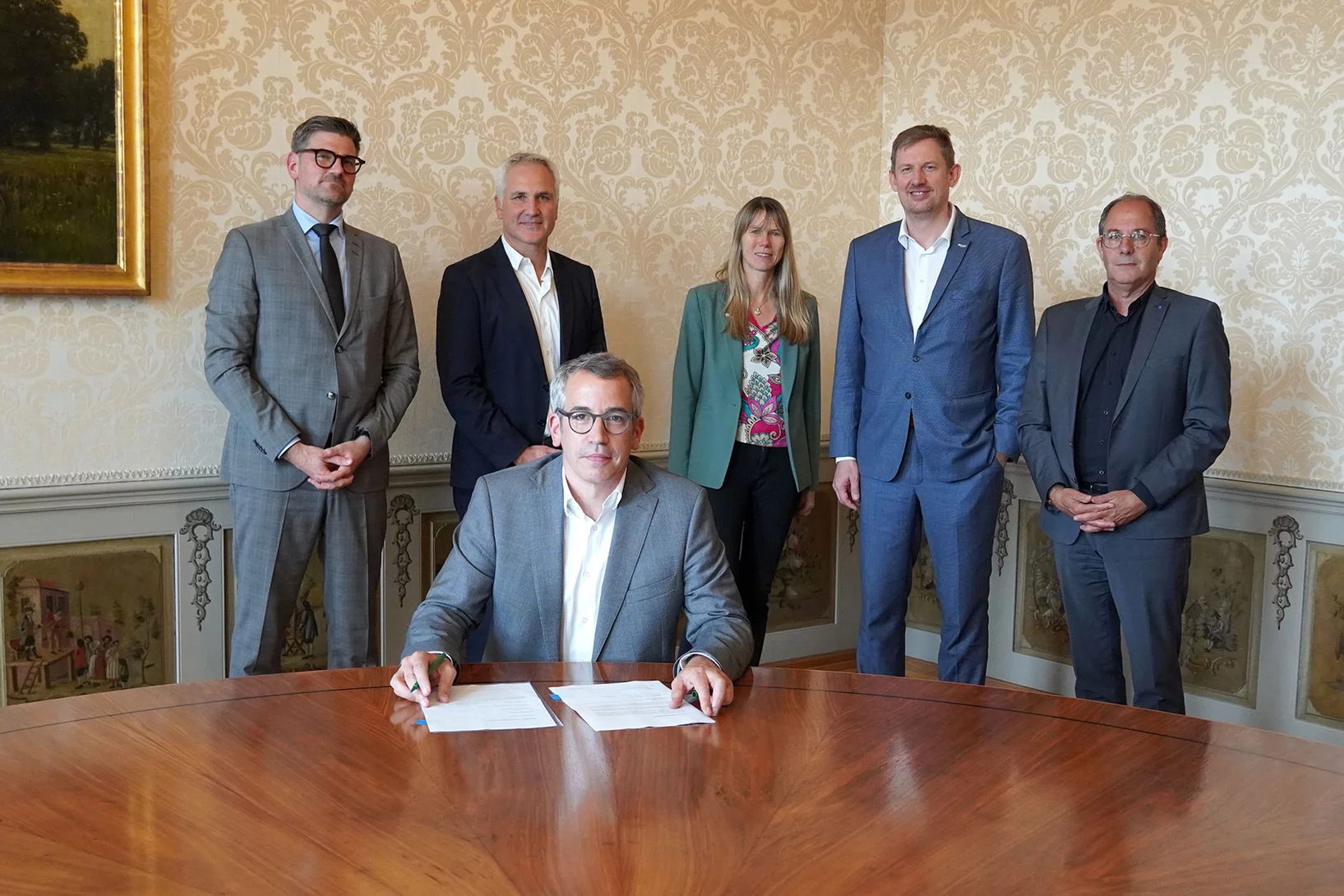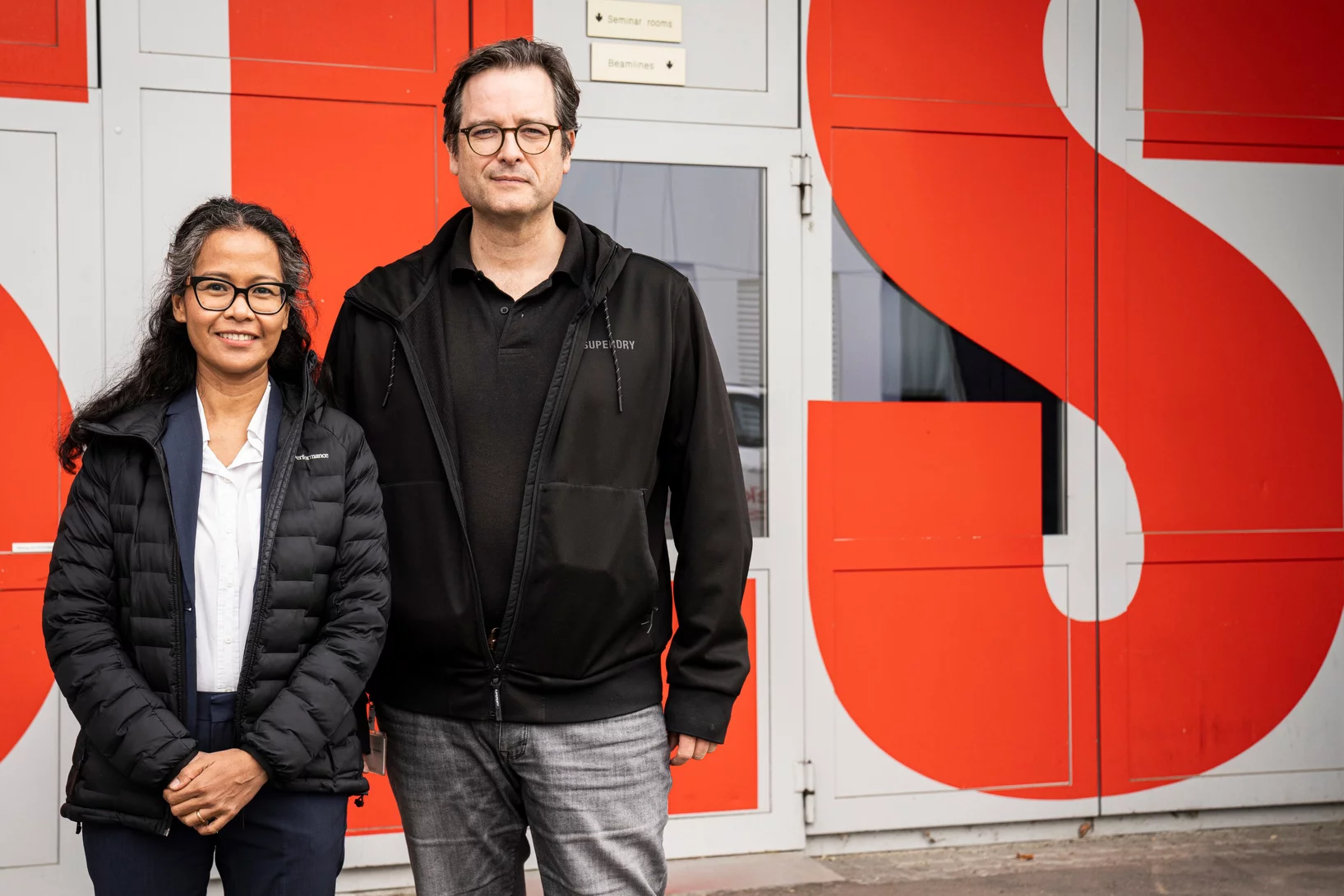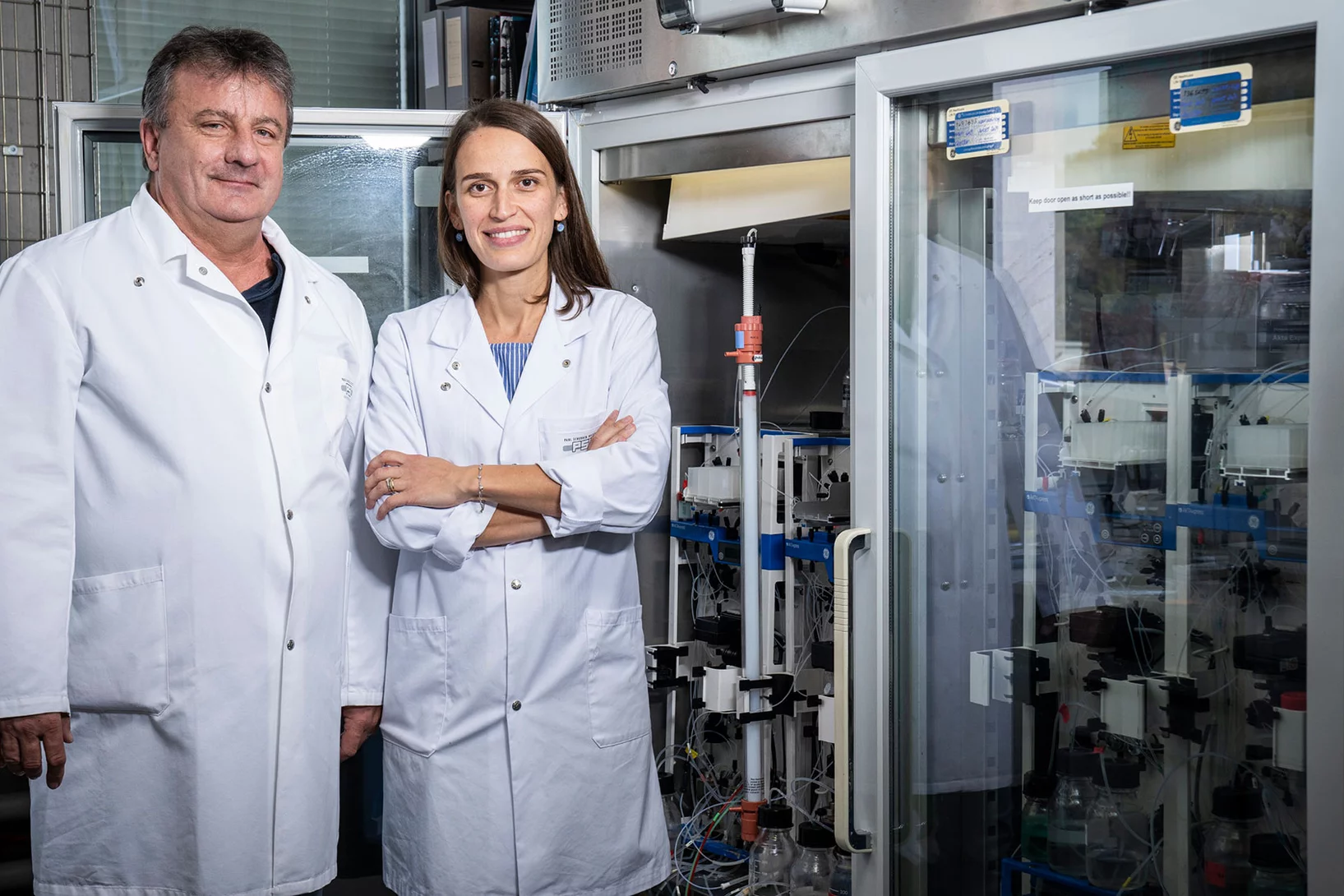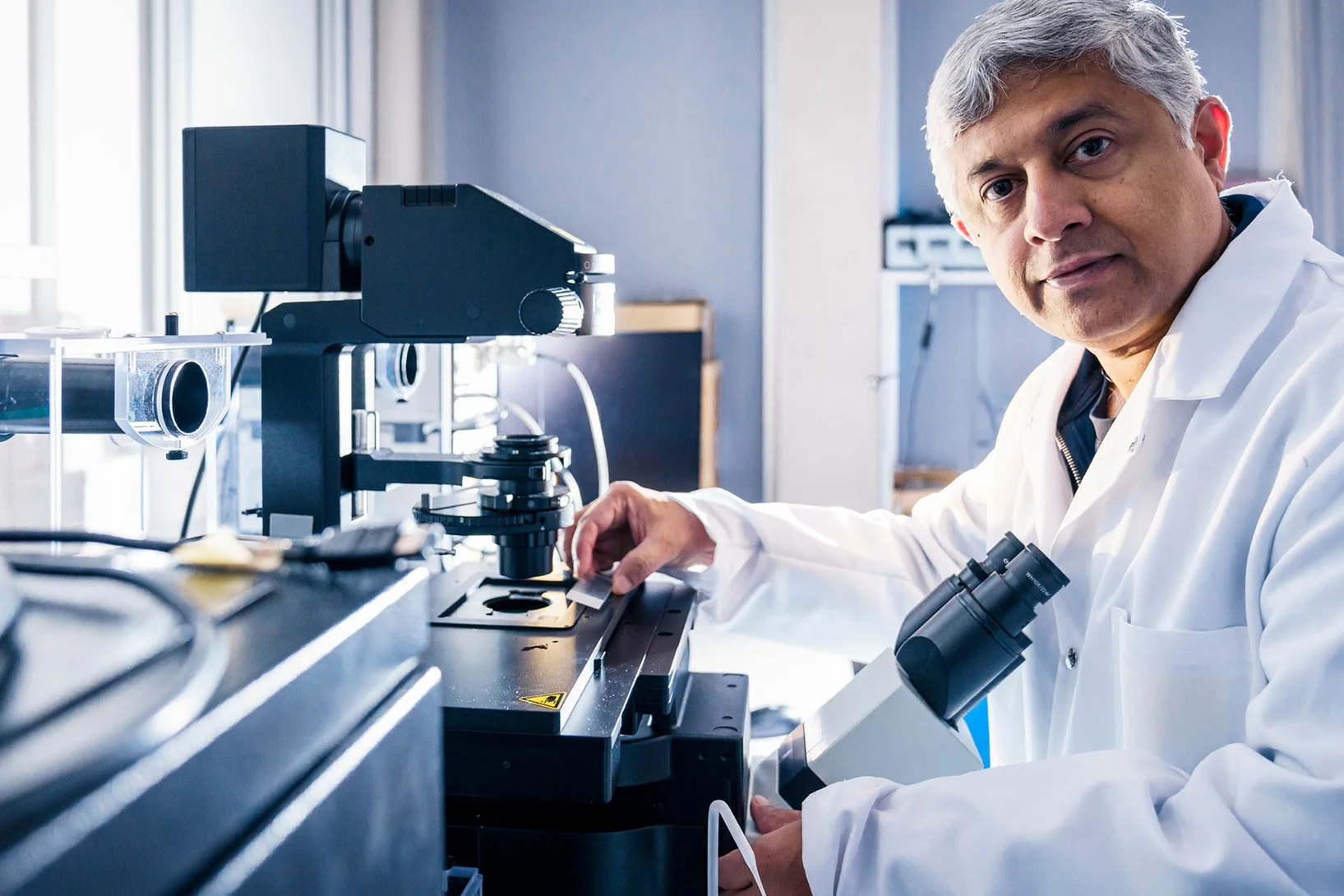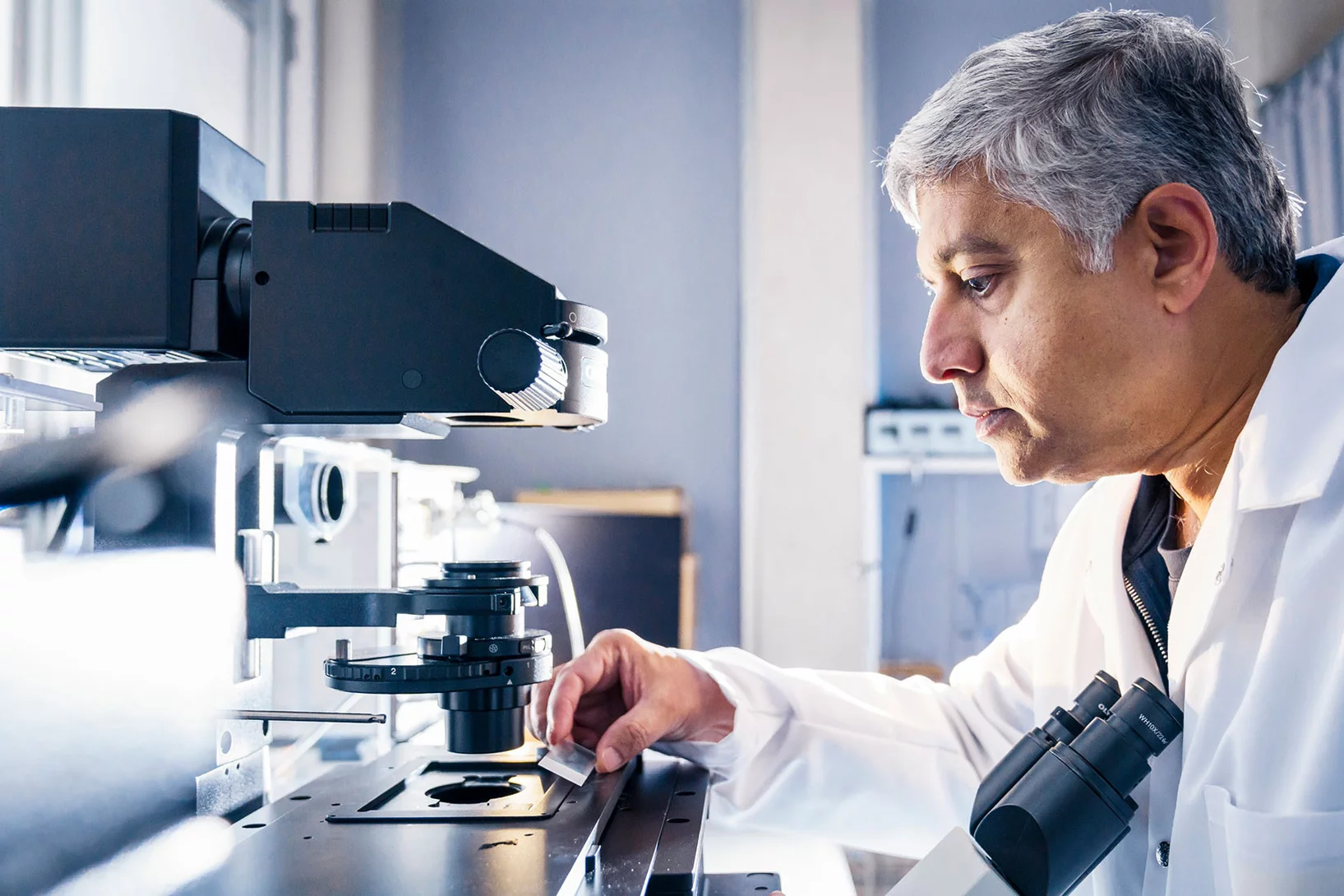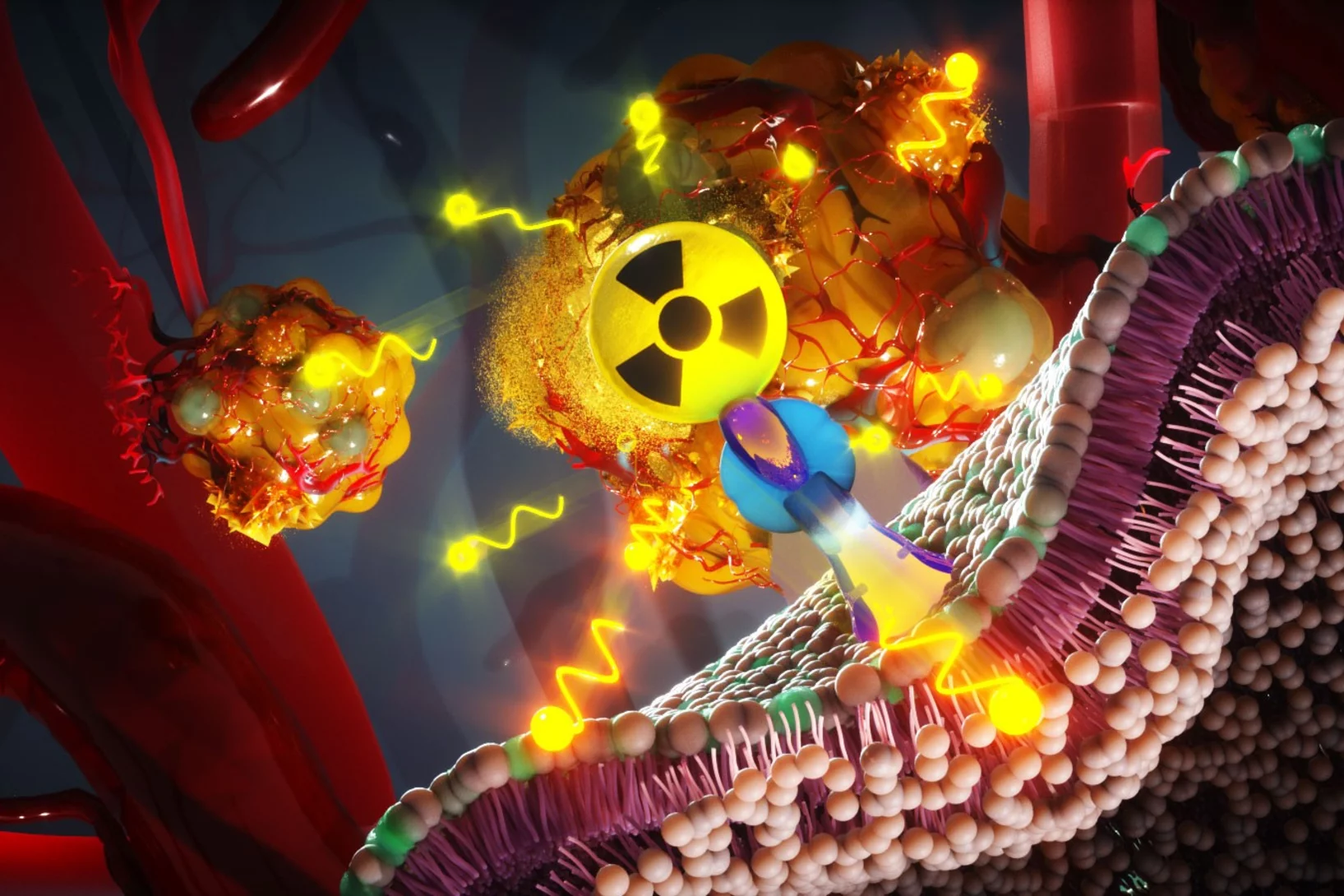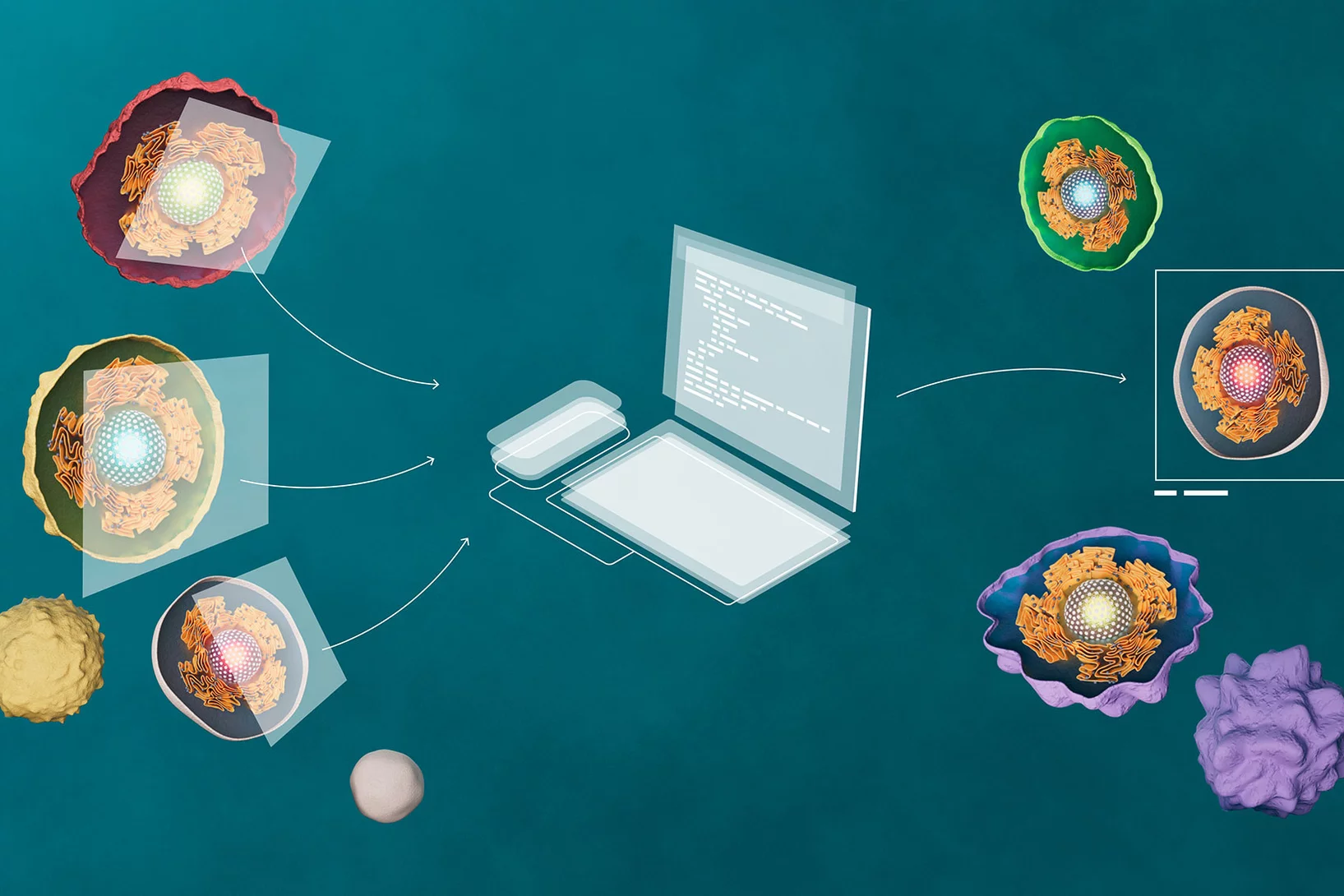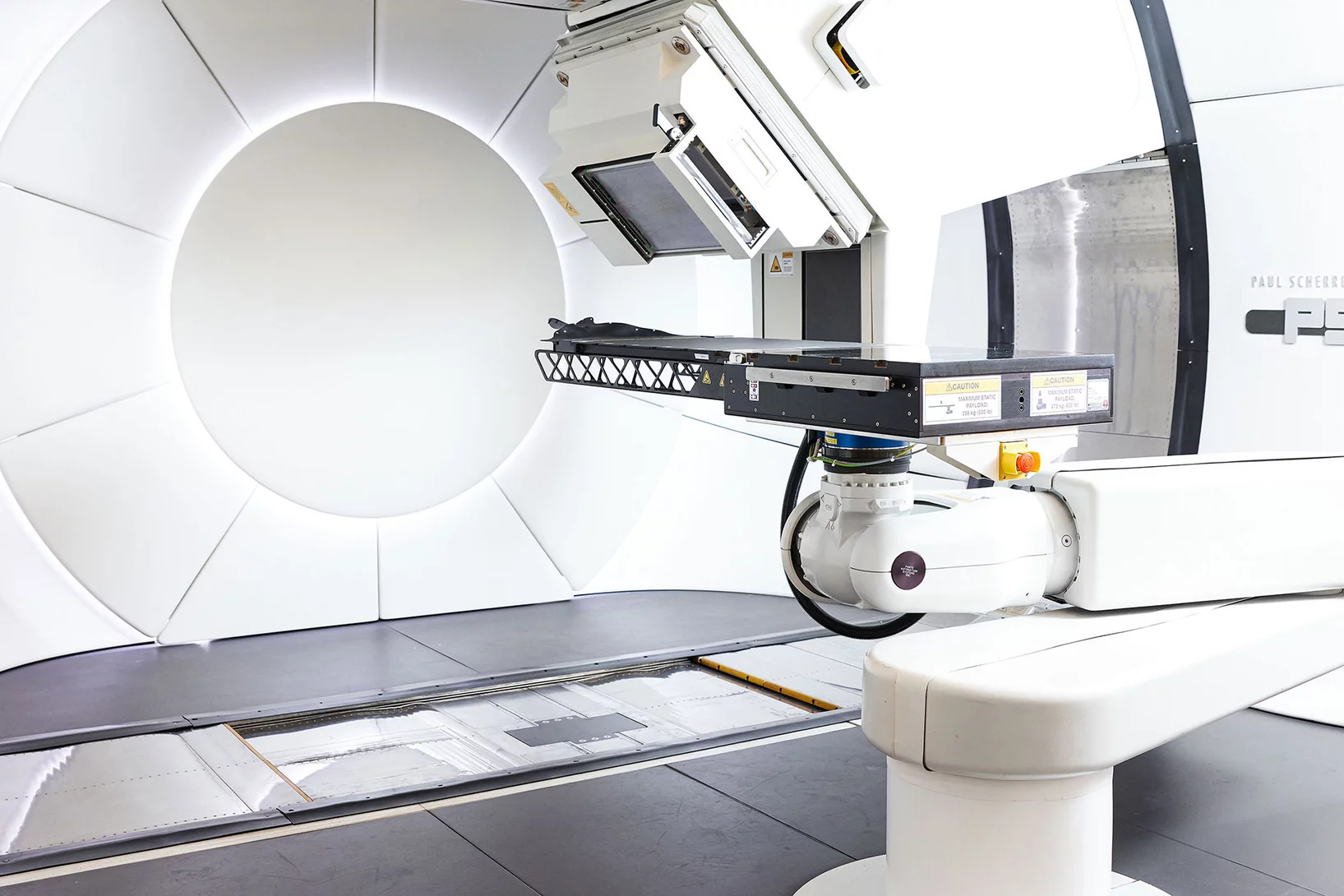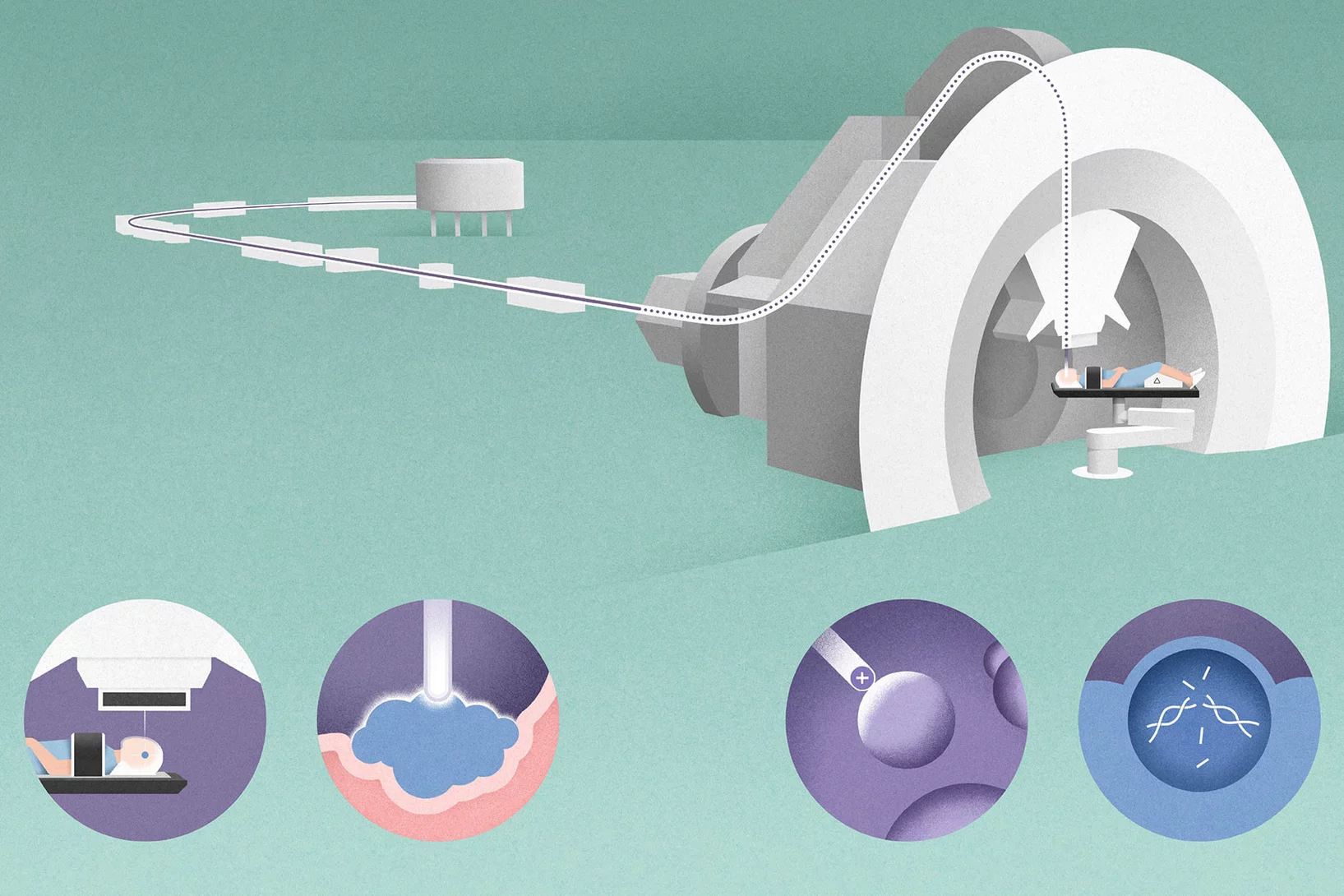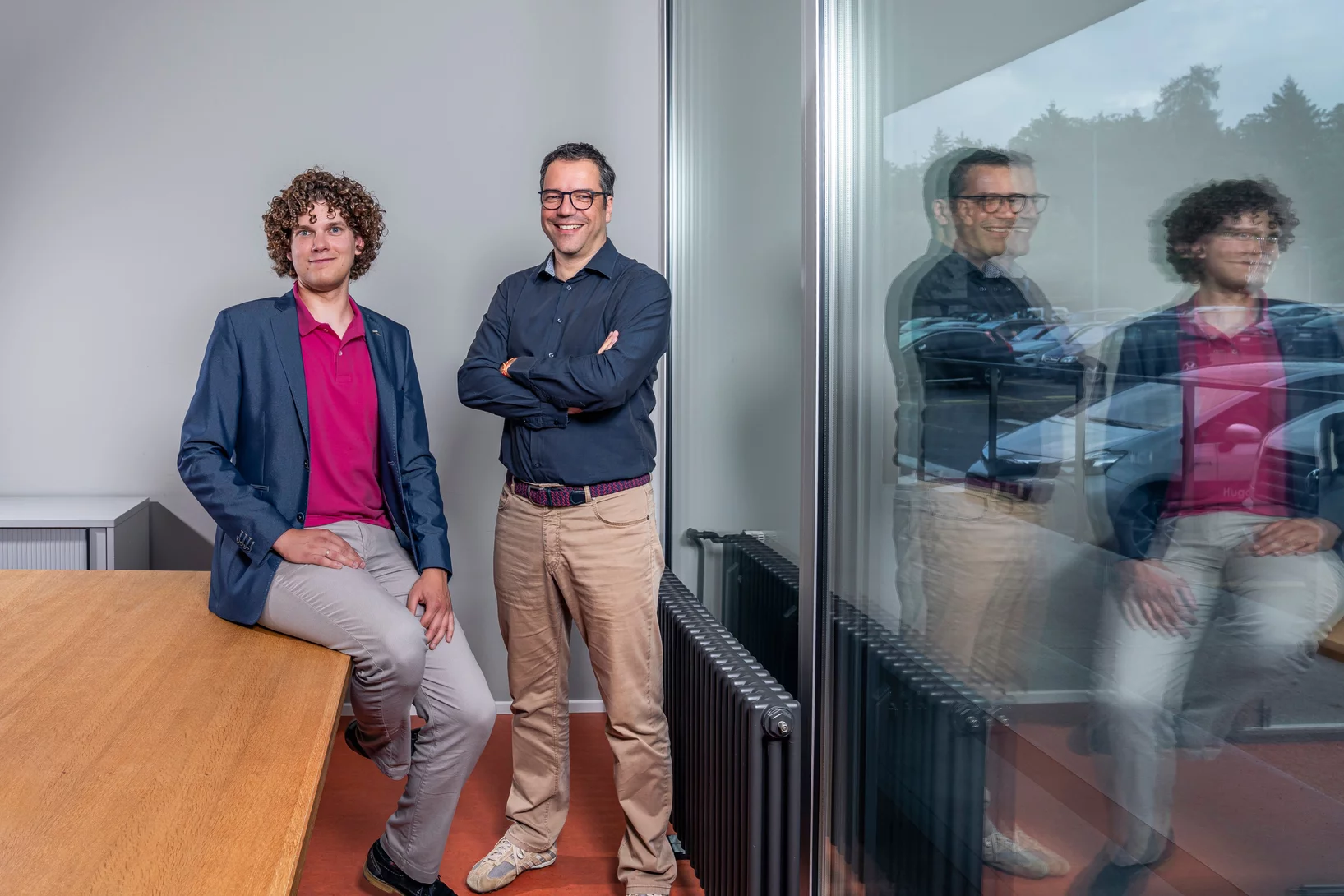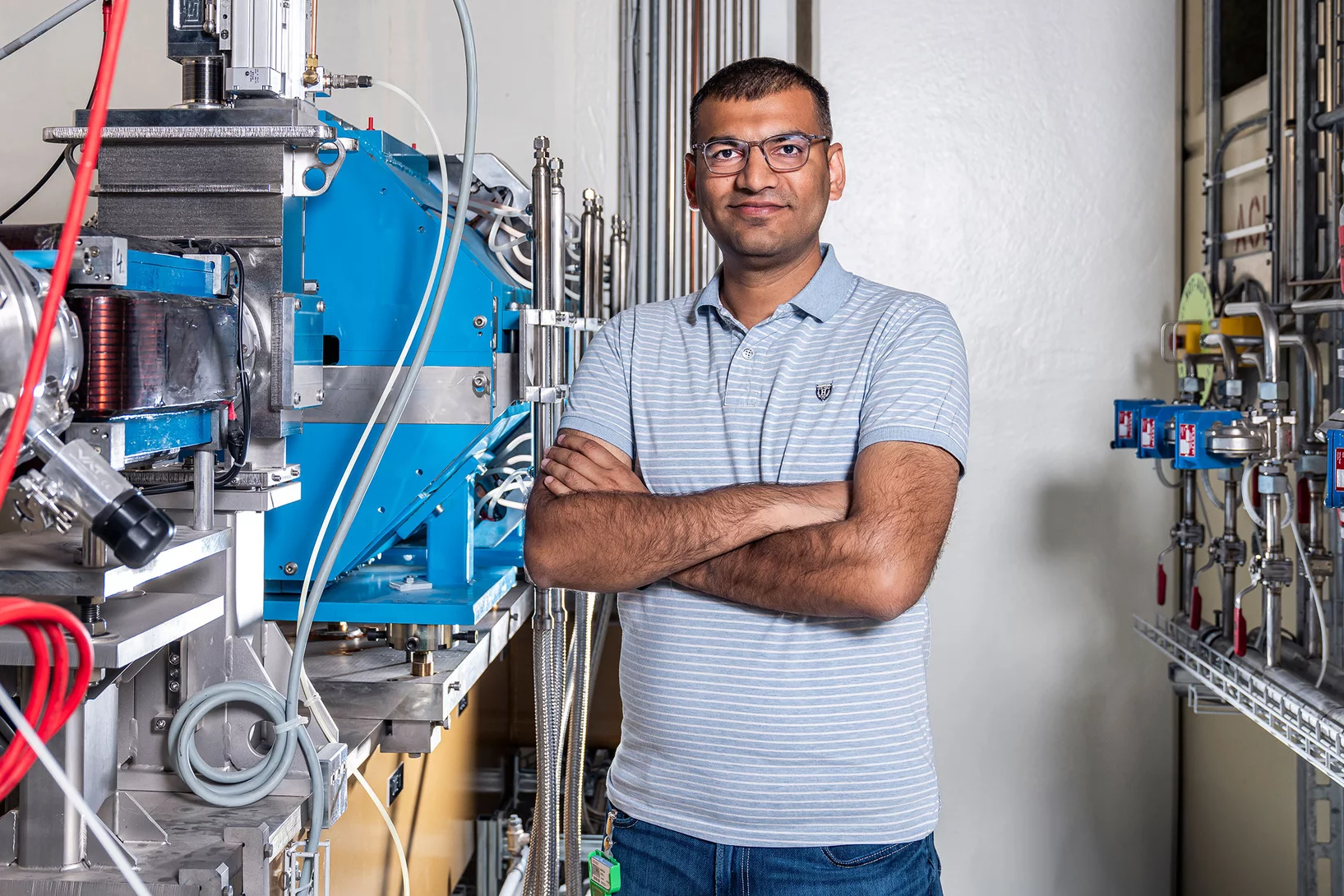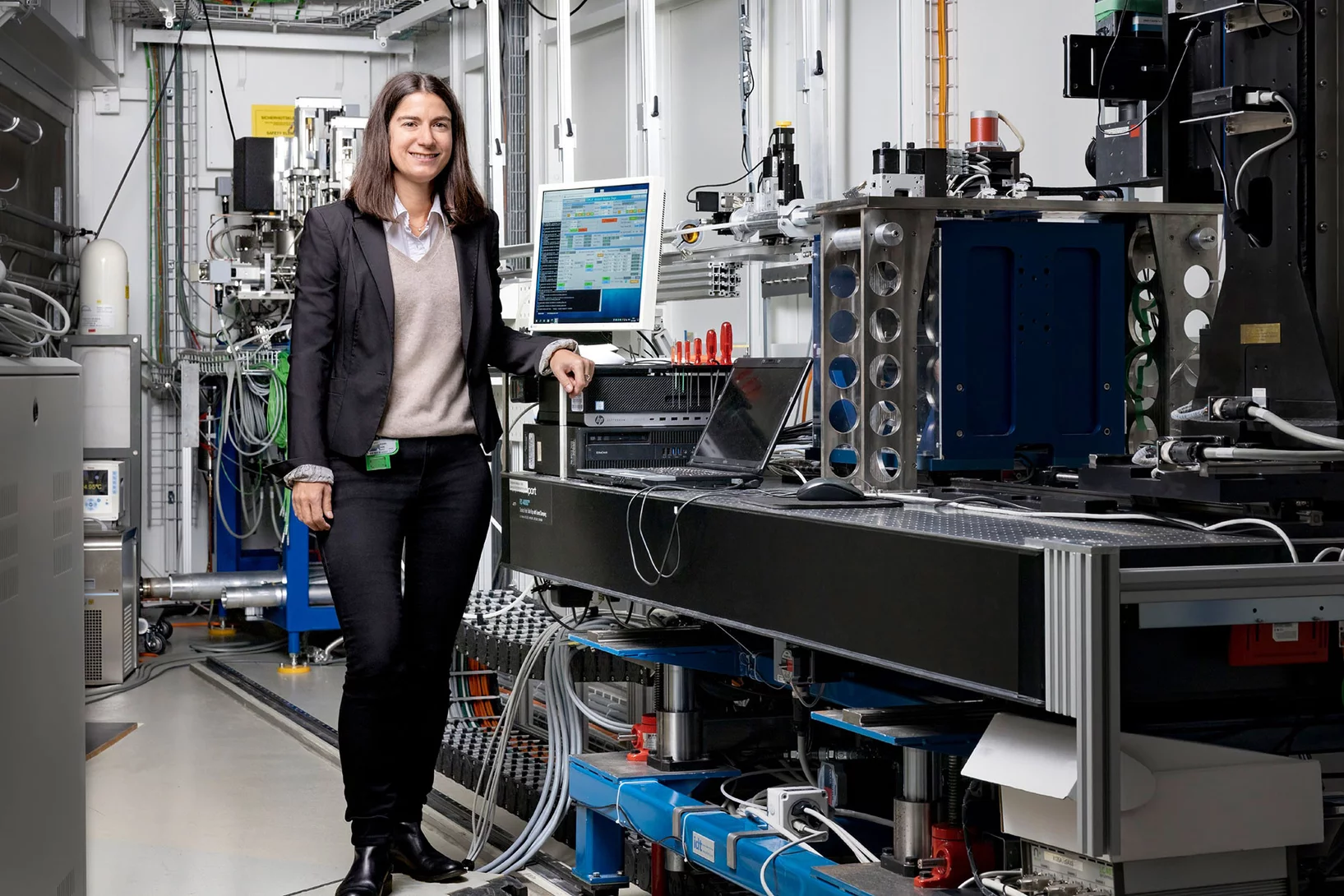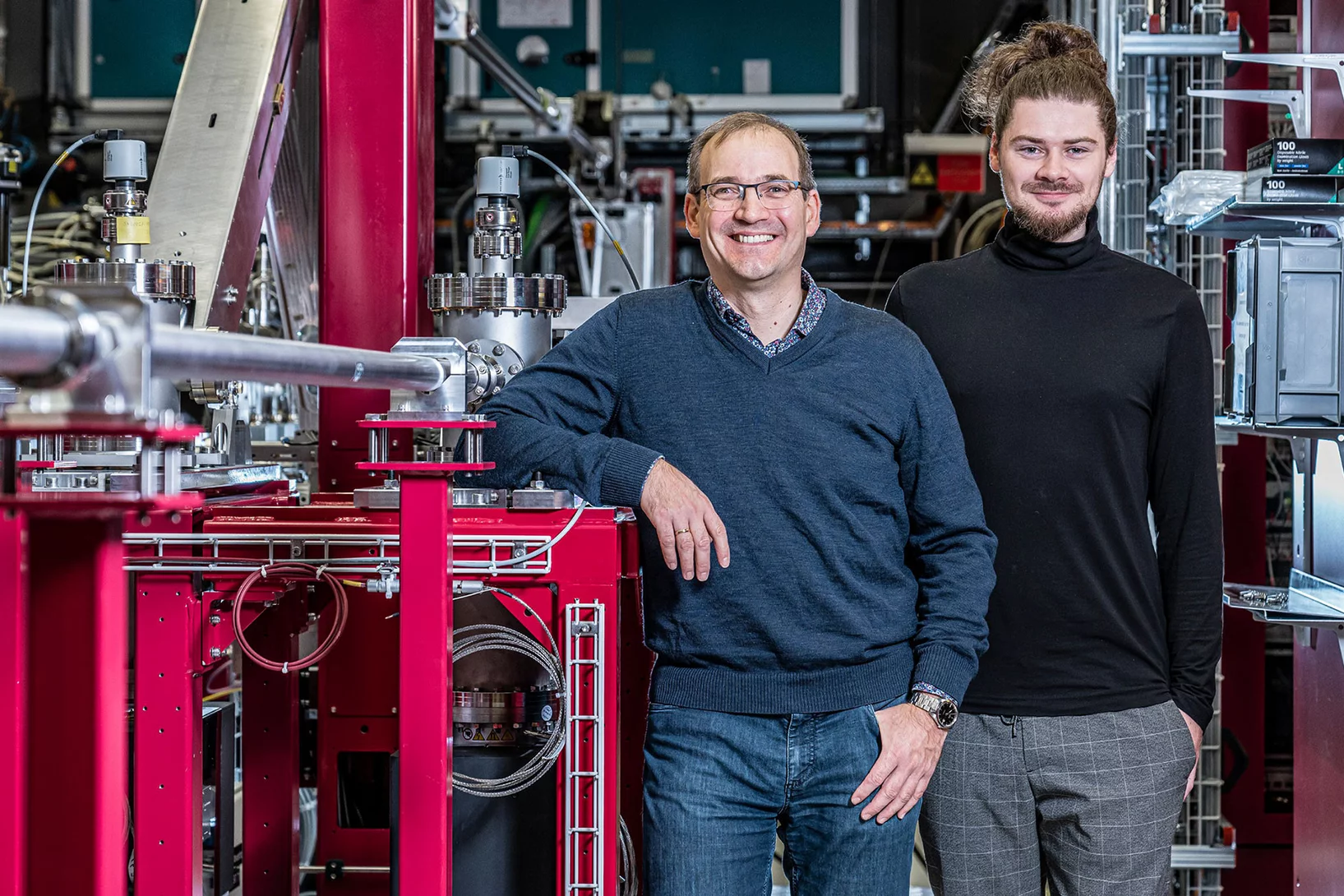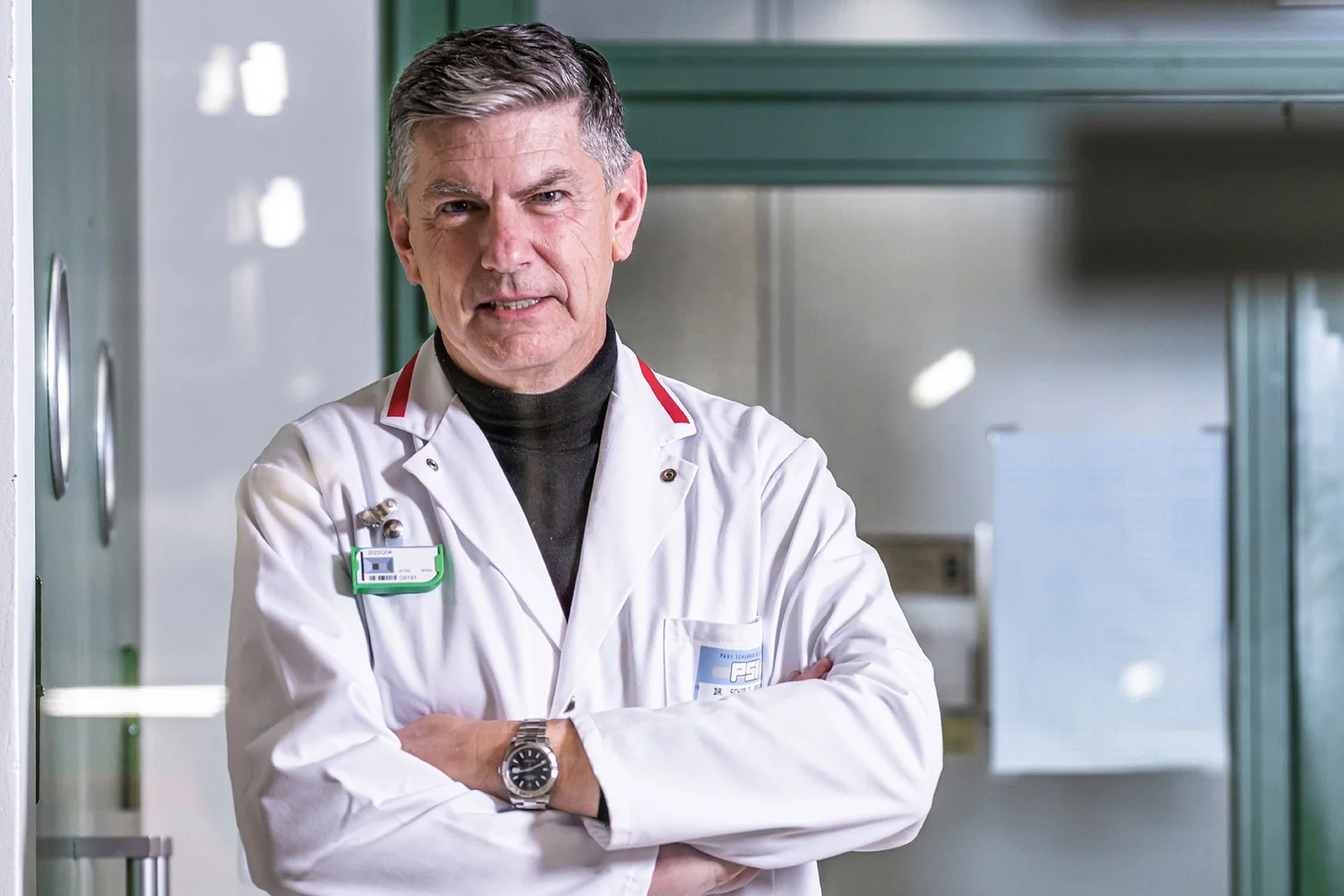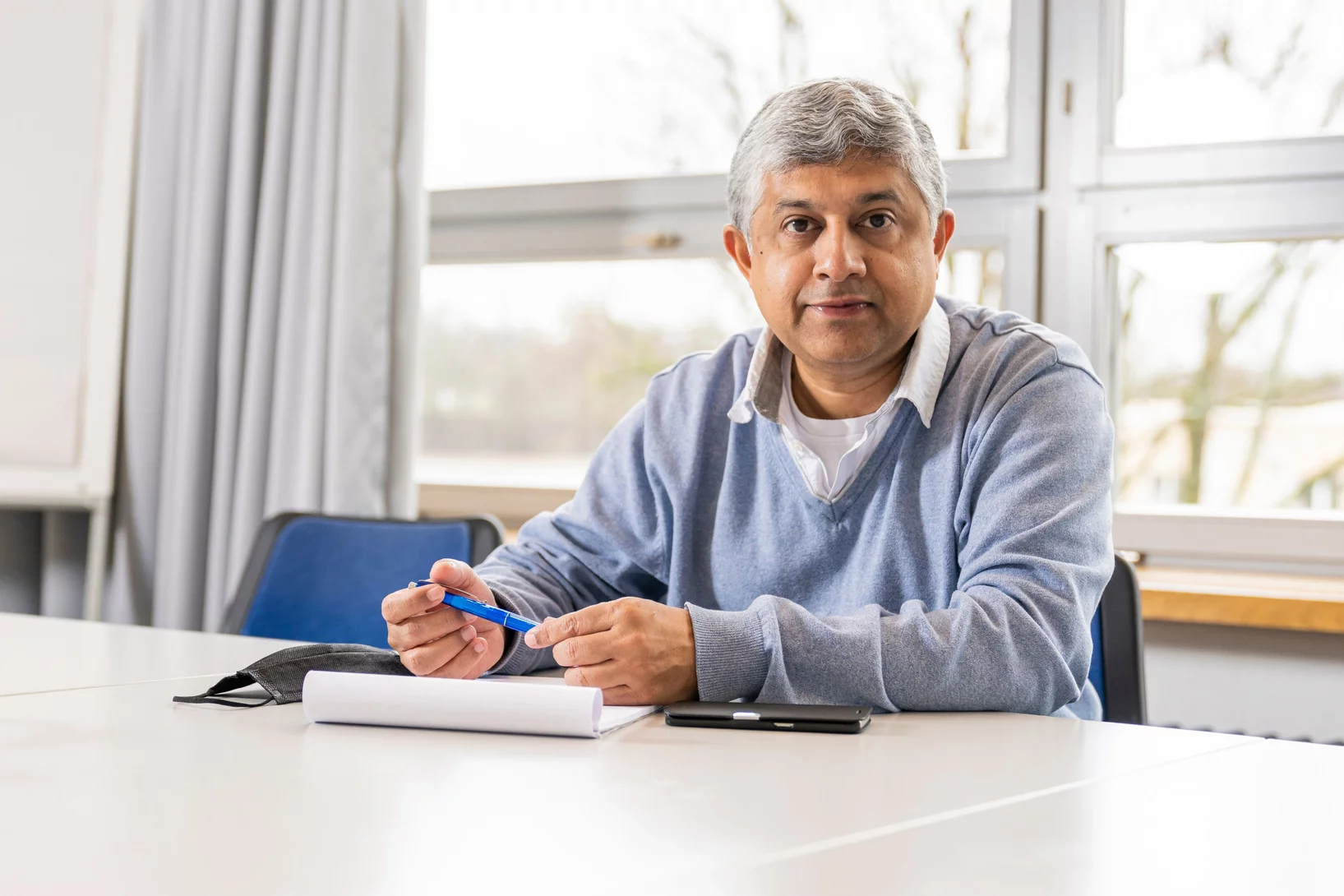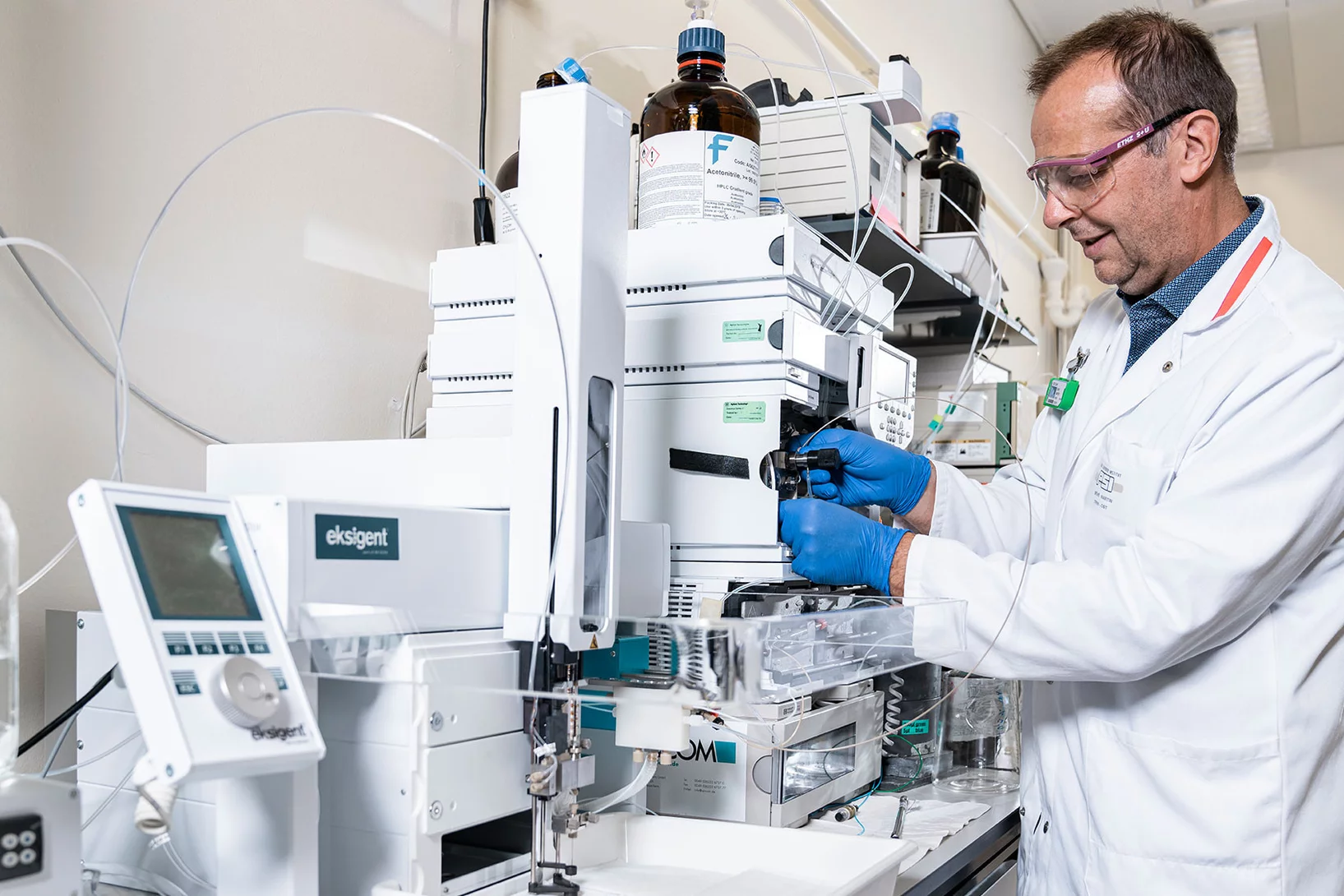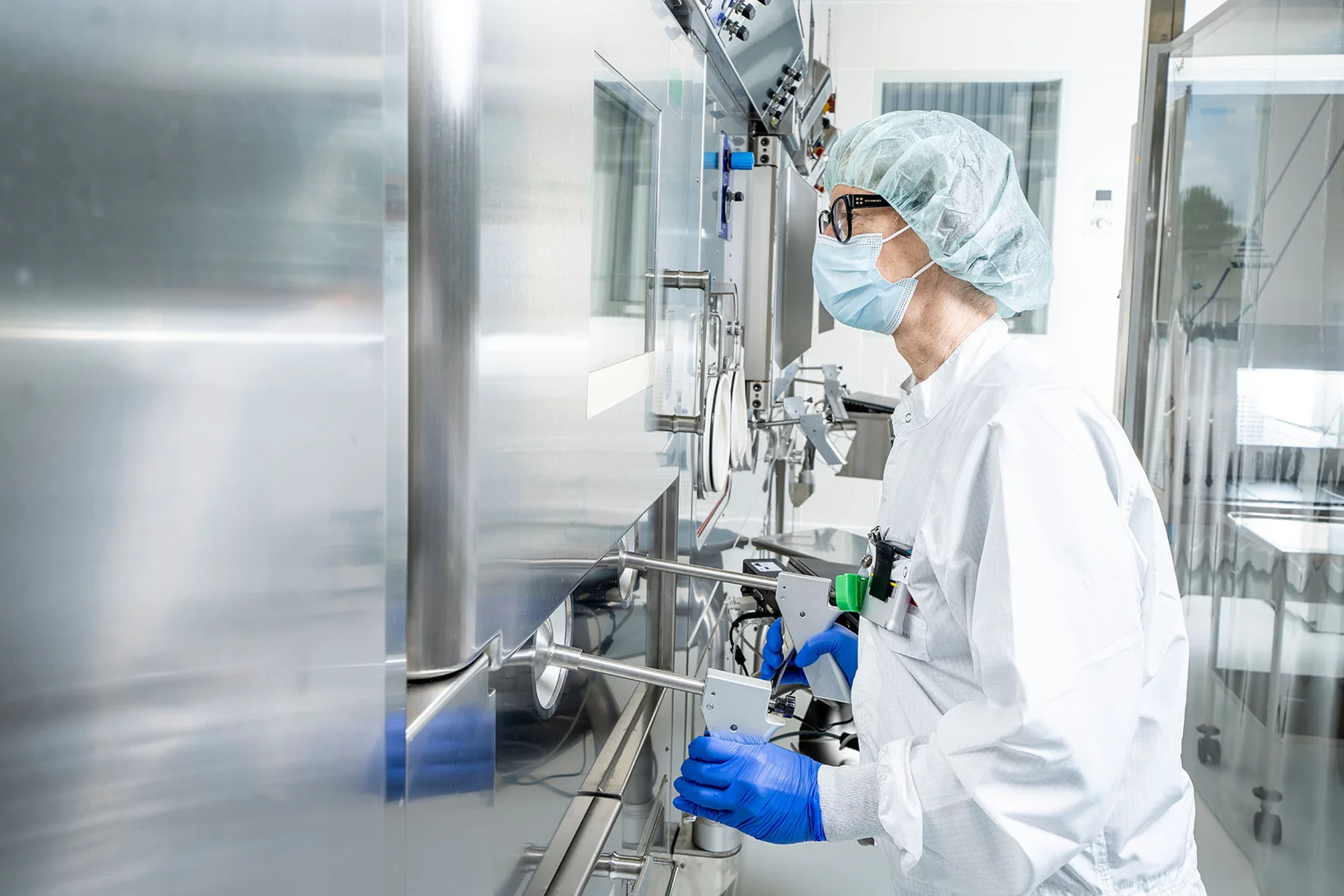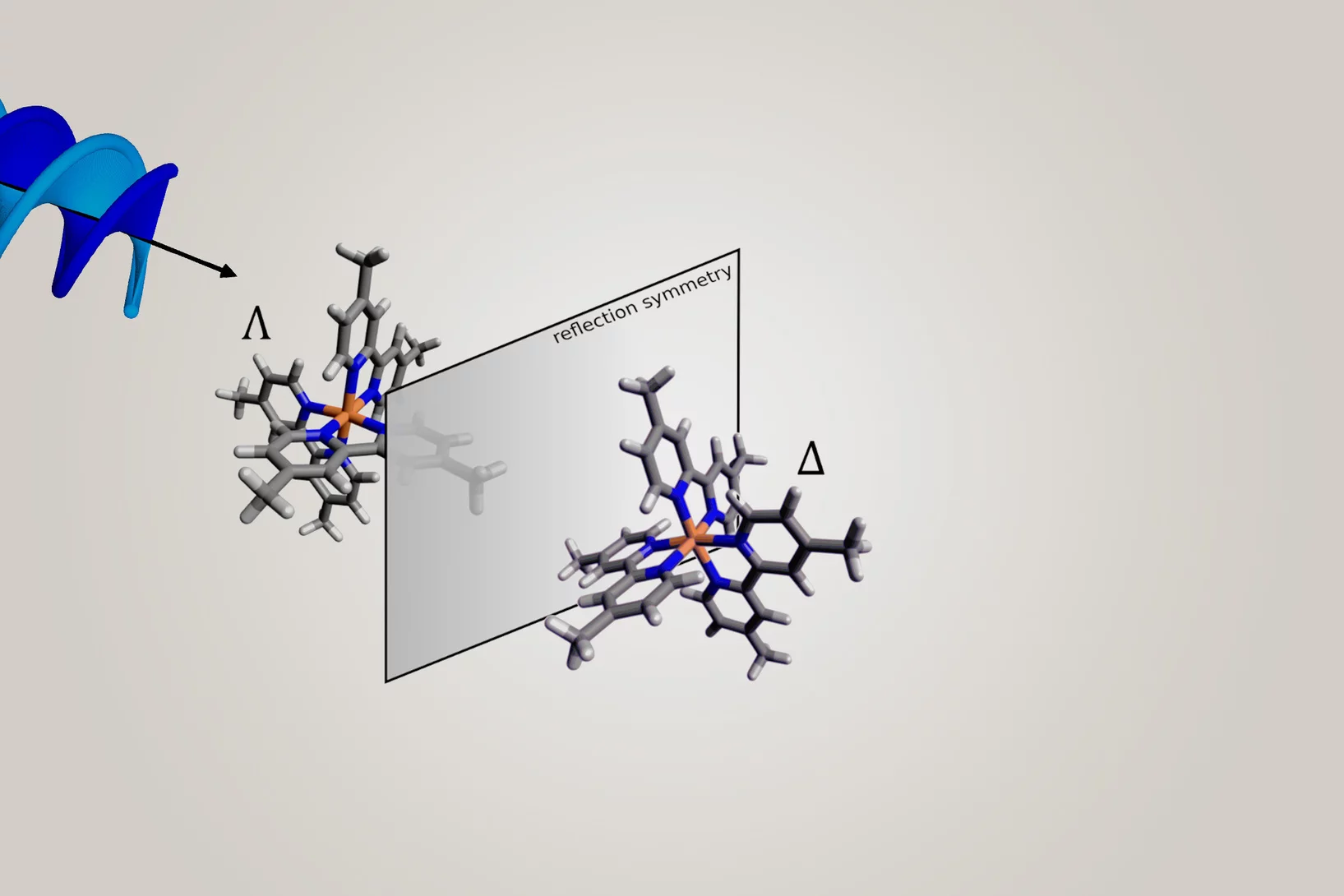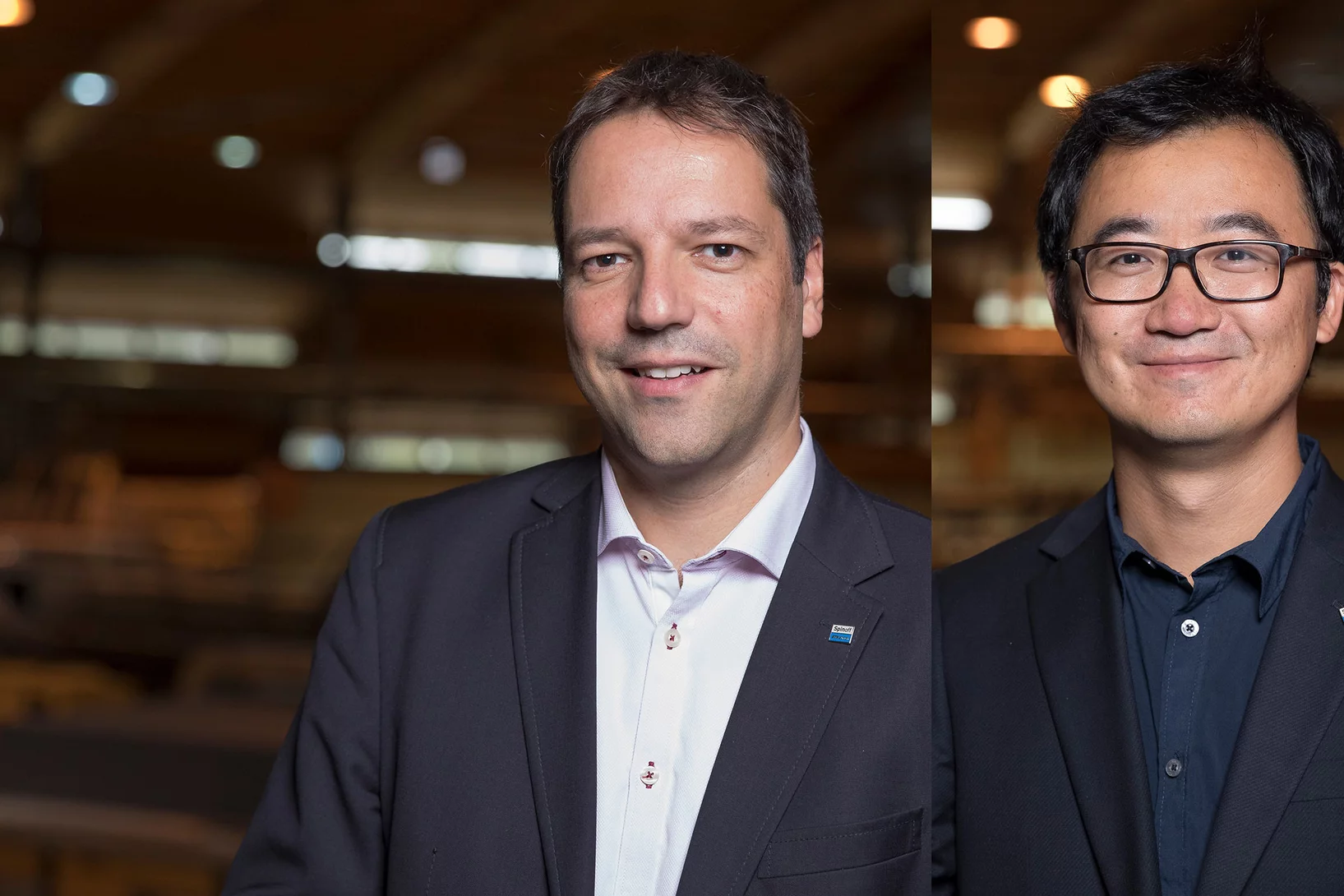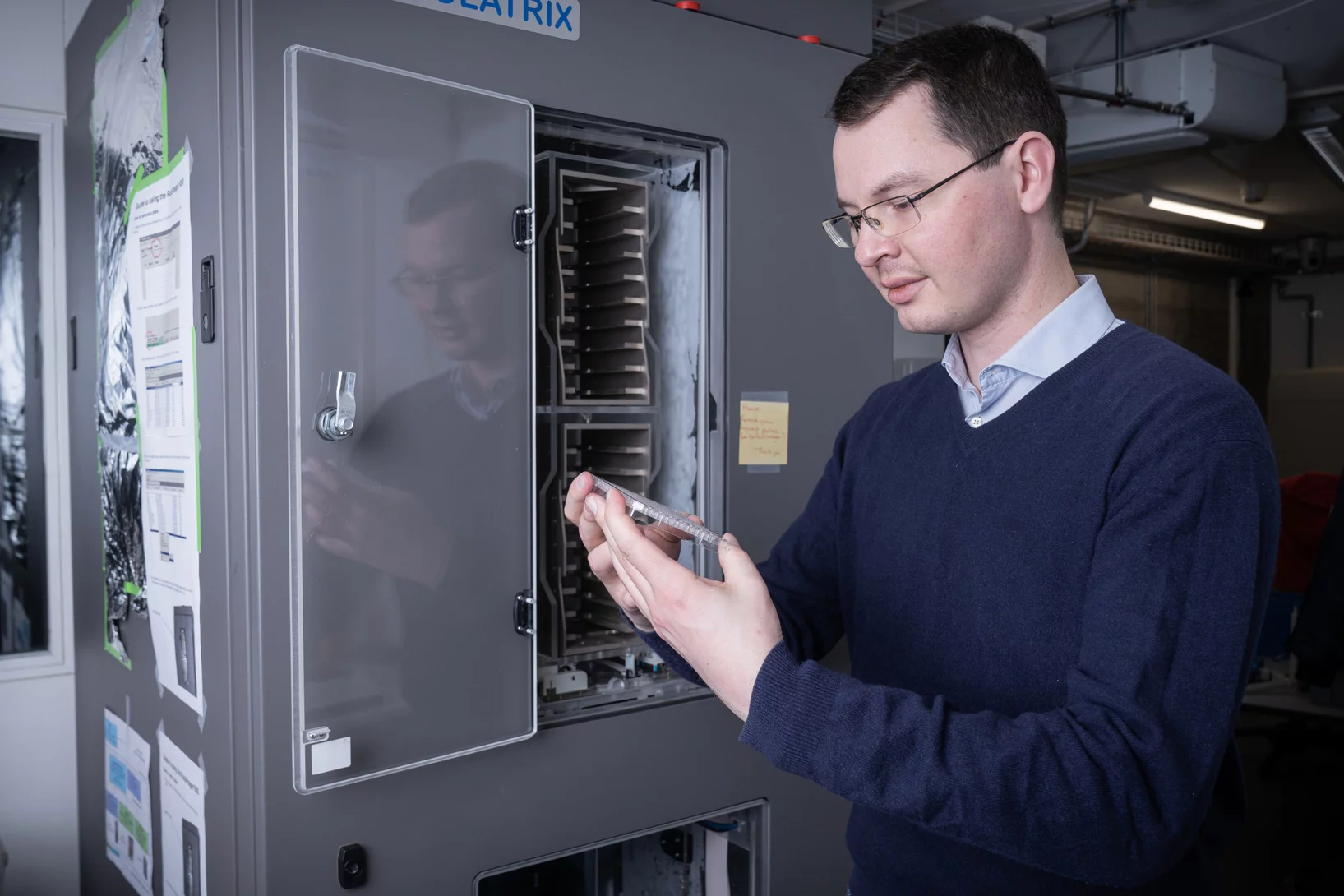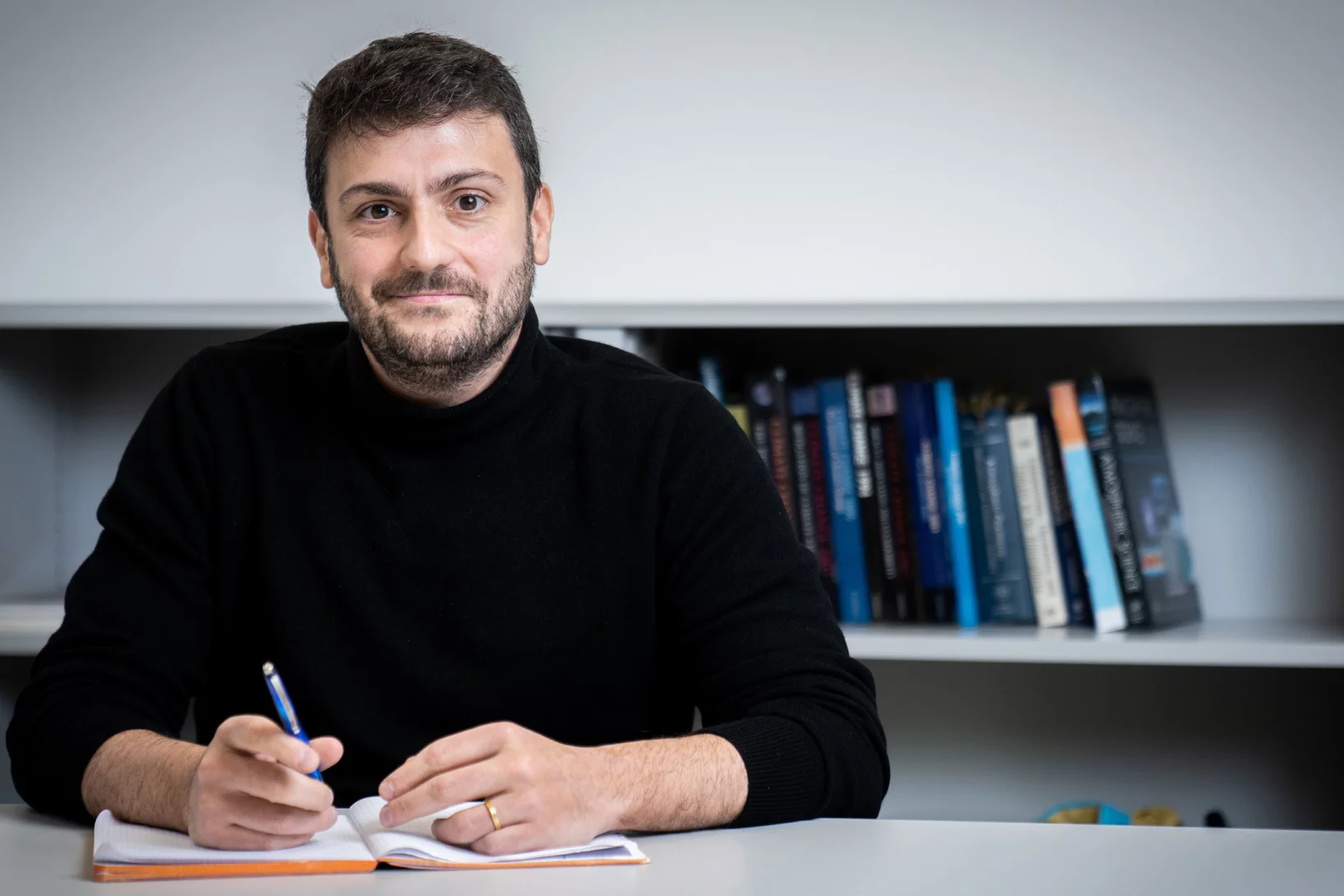In the area of Health Innovation, several research groups at PSI are engaged in the study of fundamental questions regarding biology and cancer therapy. For example, they explore the structure of proteins – extremely complex biomolecules that are responsible for many different functions in organisms. Using PSI’s large research facilities, scientists also explore processes in biological tissue in order to fully understand their function and the development of specific diseases or deterioration processes. The ultimate goal is to find medicines that allow people to live as healthy a life as possible.
Patients with specific types of cancer are treated at the proton therapy facility on the PSI campus. Radiopharmaceuticals provide cancer treatments for very small tumours distributed throughout the body.
Find out more at: Overview Health Innovation
On the way to light-controlled medicine
PSI researchers have elucidated the structure of special photoreceptors.
Tumour irradiation, individualised daily
A PSI feasibility study shows: Even in everyday clinical practice, treatment can be adapted daily. Thus, the tumour will always be treated with exactly the right dose of radiation.
Breast cancer classification using AI
Researchers at PSI and MIT are developing a new approach, which combines imaging and artificial intelligence to improve the staging of breast cancer.
Protein droplets likely don’t cause Parkinson’s
Study deepens our understanding of neurodegenerative diseases linked to protein aggregation.
Joining forces to cure children
The close collaboration between PSI and the University Children’s Hospital Zurich for the benefit of children with cancer began 20 years ago.
Slipping a note to a neighbour: the cellular way
Study reveals how drug molecules bind in channels between neighbouring cells, changing intercellular communication.
New association brings medical practice and research together
The Association for Medical Research and Innovation in the Canton of Aargau was founded on 3 June 2024.
A 40-year success story: Protons against eye cancer
In March 1984, people were irradiated at PSI for the first time against a rare but very malignant type of cancer: They had a tumour in their eye.
New nuclear medicine therapy successfully tested
A promising radiopharmaceutical against metastatic neuroendocrine tumours – developed at the Paul Scherrer Institute PSI – has been successfully tested.
Cause of clogged hypodermic needles discovered
Researchers at PSI and the ANAXAM technology transfer center have found the cause of clogging in prefilled syringes.
New possibilities for a healing toxin
PSI researchers discover a surprising mechanism that could broaden the spectrum of therapeutic uses of botulinum toxin.
Enabling early detection of cancer
PSI researchers develop a fundamentally new method for early detection of cancer.
Reprogramming tissue mechanically
Scientists at PSI have used mechanical stimuli to turn connective tissue cells into stem-cell-like cells and transplanted these into damaged skin tissue. This speeds up the regeneration of the skin and the healing of wounds.
Terbium-161: new radionuclide therapy hits the clinic
Highly targeted cancer treatment has the potential to eliminate ultra-small cancer lesions that cause disease recurrence.
Grasping diseases by the roots
PSI researchers take pictures of cell nuclei using modern high-resolution imaging techniques, employ learning algorithms to comb through these data, and thus can more reliably identify anomalies.
A Swiss premiere Proton radiotherapy to treat oesophageal cancer
On 15 August 2023 a patient suffering from oesophageal cancer was treated with proton beam therapy at PSI – for the very first time in Switzerland.
Physics against Cancer: How PSI pioneered modern proton therapy
A recently published book tells the story of scientists and physicians at PSI developing a revolutionary technique to treat cancer.
Earlier detection of breast cancer
3D X-rays can improve breast cancer screening.
Fighting tumours down to the last cancer cell
A project that promises to improve the chances of survival for prostate cancer patients has received 2 million Swiss francs in funding.
Beamline innovation could enable treatment within a breath
Momentum cooling could enable shorter treatment times for patients undergoing radiotherapy with protons, circumventing the problems of internal organ motions.
X-ray imaging after heart transplantations
Synchrotron light can be used in follow-up after a heart transplant to determine whether the body may be rejecting the new organ.
Using light to switch drugs on and off
PSI researchers record a molecular film of a cancer drug fitted with a photoswitch. This opens new insights for drug developers.
Radionuclides for personalised medicine
TATTOOS is part of the upgrade project IMPACT. Roger Schibli explains its importance for the future of cancer treatment.
Paul Scherrer Institute and Apollo Health Ventures Launch Focal Biosciences
Newly established Focal Biosciences will focus on bringing together leading experts and scientific discoveries to harness cellular reprogramming in the fight against common age-related diseases.
Making tumour diagnosis kinder to kidneys
Improved method thanks to a molecular trick
Swissmedic grants operating licence for new radiopharmaceutical production facility
From research to production – the new pharmaceutical lab at PSI supplies neighbouring hospitals with novel cancer drugs.
Making it easier to differentiate mirror-image molecules
Researchers have shown that mirror-image substances – so-called enantiomers – can be better distinguished using helical X-ray light.
Nominated: High-precision X-rays of breast tissue
Employing high-resolution X-rays to diagnose breast cancer – PSI researchers nominated for the European Inventor Award.
How to find anti-cancer agents
PSI researchers have developed a new substance that disables a vital protein in the cell skeleton.
Asthma: diagnosis in a single breath
PSI is involved in the development of a breath test that can be used to diagnose asthma. Imad El Haddad explains why such a test could be extremely useful – especially for children.



